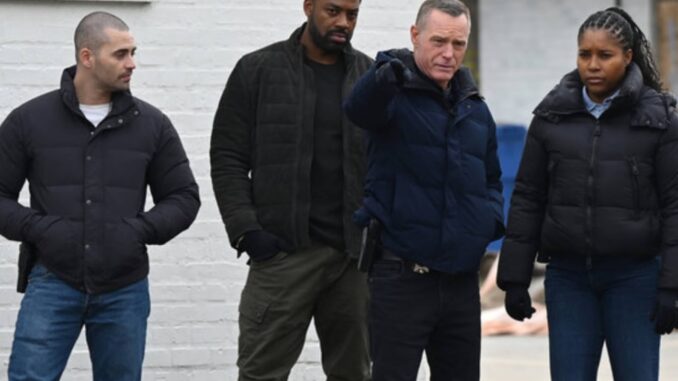
The Thin Blue Line in High Definition: How Chicago PD Handles Real Crime Issues in Fiction
In the sprawling landscape of procedural dramas, NBC's Chicago PD carves out a distinct, often uncomfortable niche. It's not the polished, cerebral deduction of CSI or the morally unambiguous heroics of classic cop shows. Instead, Chicago PD positions itself as a gritty, street-level portrayal of policing, diving headfirst into the very real, often brutal, crime issues plaguing modern American cities. Yet, as a work of fiction, its handling of these complex problems is a delicate balancing act, often prioritizing dramatic tension and character arcs over nuanced societal critique, creating a mirror that reflects some truths while distorting others for the sake of entertainment.
One of Chicago PD's most striking features is its unflinching willingness to tackle sensitive and topical crime issues head-on. From the relentless grip of gang violence to the devastating opioid crisis, from the systemic challenges of human trafficking to the insidious nature of police corruption and racial profiling, the show rarely shies away from headlines. Episodes frequently open with stark, often visceral depictions of these realities: a drug overdose in an alley, a drive-by shooting claiming an innocent life, or a child caught in the crossfire of warring factions. This immediacy lends the show a powerful sense of verisimilitude, forcing viewers to confront the raw consequences of these issues. For instance, the ongoing struggle with narcotics is not just a plot device for a bust; it often delves into the lives of addicts, their families, and the wider social decay it engenders. Similarly, episodes dedicated to gun violence frequently explore the cycle of retribution, the fear gripping communities, and the often-futile attempts to stem the tide.
However, the show’s fictional framework inevitably dictates a simplified resolution to deeply complex problems. Real-world crime issues are rarely, if ever, neatly contained and resolved within a 45-minute episode. Chicago PD, by necessity, often presents these sprawling dilemmas as a series of individual cases. A drug ring is busted, a trafficker is caught, a corrupt cop is exposed. While these provide satisfying narrative closures, they rarely delve into the root causes of these societal ills – poverty, lack of opportunity, systemic inequalities, or the long-term impacts of policy failures. The focus remains largely on the symptom (the crime) and the immediate solution (the arrest), rather than a deeper exploration of the disease. This can inadvertently convey a message that complex problems are solvable simply through more effective policing, rather than through multi-faceted societal interventions.
Perhaps the most defining characteristic of Chicago PD's approach is its unwavering commitment to the "cop's perspective," particularly through the lens of Intelligence Unit Sergeant Hank Voight. Voight, a character steeped in moral ambiguity, embodies the show's exploration of justice that often skirts, if not outright defies, legal boundaries. When confronted with heinous crimes – a child abduction, a serial rapist, or a murderer who exploits legal loopholes – Voight's "ends justify the means" philosophy takes center stage. The show frequently presents scenarios where the official channels are insufficient or too slow, thus legitimizing Voight's extra-legal methods (intimidation, evidence tampering, even violence) as the only way to achieve "real" justice. This narrative choice, while dramatically compelling, treads a fine line. It can, at times, romanticize vigilantism and reinforce a distrust of legal processes, suggesting that true justice is only attainable through a powerful few willing to break the rules.
Yet, to its credit, Chicago PD does not entirely shy away from the internal and external criticisms of such methods. Characters like Jay Halstead and Hailey Upton often serve as the moral compass, grappling with the ethical dilemmas posed by Voight's actions. Furthermore, the show periodically tackles the issue of police accountability head-on. The Internal Affairs Bureau (IAB) is a recurring presence, often portrayed as an antagonist to Intelligence's methods, but sometimes as a necessary check. The character of Officer Kevin Atwater, in particular, has been a crucial vehicle for exploring issues of racial bias within the force and the broader community's distrust of policing, especially in the wake of real-world events like the George Floyd protests. Atwater’s storylines frequently highlight the impossible tightrope Black officers walk, facing prejudice from both sides of the "thin blue line" and struggling to build community trust in a system often perceived as unjust. These moments offer a vital, albeit often contained, counter-narrative to the show's predominant "cop-first" perspective.
In conclusion, Chicago PD operates in a fascinating space between grim reality and dramatic necessity. It excels at illustrating the immediate impact of real crime issues, often presenting them with a visceral intensity that commands attention and fosters empathy for victims and the officers who carry the emotional toll of their work. However, as a fictional narrative designed for mass consumption, it often simplifies these systemic problems into individual cases with episodic resolutions. Its portrayal of policing, particularly through the figure of Hank Voight, consistently champions a results-oriented, often morally ambiguous form of justice, while occasionally, through characters like Kevin Atwater, acknowledging the deeper societal and racial complexities. Ultimately, Chicago PD serves as both a mirror reflecting the harsh realities of urban crime and a magnifying glass, selectively highlighting elements that create compelling drama, offering an illustrative, if not always comprehensively analytical, look at the enduring challenges of law enforcement in a troubled world.
